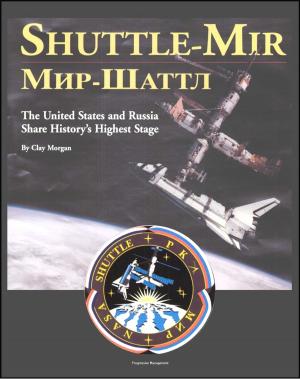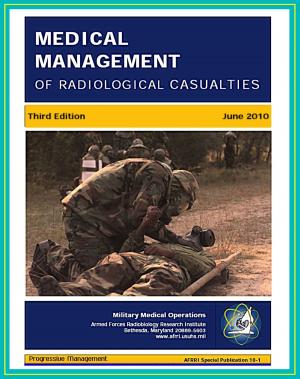The President and the Intelligence Community: The Importance of the Relationship - Fascinating Case Studies of John Kennedy, George H.W. Bush, and George W. Bush, Including Bay of Pigs, Desert Storm
Nonfiction, History, Military, United States, Social & Cultural Studies, Political Science| Author: | Progressive Management | ISBN: | 9780463240656 |
| Publisher: | Progressive Management | Publication: | June 29, 2018 |
| Imprint: | Smashwords Edition | Language: | English |
| Author: | Progressive Management |
| ISBN: | 9780463240656 |
| Publisher: | Progressive Management |
| Publication: | June 29, 2018 |
| Imprint: | Smashwords Edition |
| Language: | English |
This important December 2017 report has been professionally converted for accurate flowing-text e-book format reproduction.
This study identifies the correlation between the quality of the U.S. president's relationship with the intelligence community and intelligence failures. This research also evaluates how the relationship changes over the course of a presidency in an effort to identify factors that contribute to a working relationship strong enough to mitigate the risk of intelligence failures. Case studies are used to establish the character of the relationships between Presidents John F. Kennedy, George H. W. Bush, and George W. Bush and their supporting intelligence communities. These relationships are then used to analyze intelligence and operational successes and failures that occurred during their respective presidencies. This study determined that, in general, a good relationship with the president increases the intelligence community's chances for success, and a negative relationship increases the chance for failure. Additionally, once failure has occurred, if a president is receptive to intelligence and change, the relationship will improve. This study also found that the intelligence community must establish trust and communication with a receptive president to form a working relationship, and recommends that a newly elected president carefully appoint a trusted, non-political Director of National Intelligence upon taking office.
From the Japanese surprise attack at Pearl Harbor in 1941 to the rise of the Islamic State in 2013, intelligence failures continue to occur, leaving political and military leaders surprised and reactive, instead of proactively deescalating or countering potential crises. A president's relationship with the Intelligence Community can significantly impact the employment of the military and its chances for success or failure. Furthermore, as the president's term continues, the relationship is subject to change based on the performance of the IC or personalities therein. Failed operations can be costly, not only in terms of the actual financial expense to conduct the operation, but also in terms of lost lives, equipment, and political capital. As a result, mitigating intelligence failures is essential in reducing unnecessary resource expenditures and political embarrassment. Analyzing past presidents' relationships with the IC can provide insight into how the IC can best support the president to decrease failures and the costs and embarrassments associated with those failures.
I. INTRODUCTION AND BACKGROUND * A. STUDY INTRODUCTION AND RESEARCH QUESTION * B. SIGNIFICANCE OF THE STUDY * C. PURPOSE AND SCOPE OF THE STUDY * D. LITERATURE REVIEW * 1. Intelligence Failure Theories * 2. Intelligence Community Evolution * 3. History of Presidencies * E. ORGANIZATION OF THE STUDY * F. CONCLUSION * II. THE INTELLIGENCE COMMUNITY * A. INTRODUCTION * B. INTELLIGENCE COMMUNITY CREATION AND REFORMS * 1. Creation of the Modern Intelligence Community and DCI * 2. Dulles's Report and DCI Smith's Changes Empowering the DCI * 3. Schlesinger's Report Addressing Efficacy and Budgeting * 4. Church Committee Report and Congressional Oversight * 5. Post-9/11 Reforms * C. INTELLIGENCE COMMUNITY MEMBERSHIP * D. THE PRESIDENT'S INTELLIGENCE AND DIRECTION * 1. In-Person Briefings * 2. The President's Daily Brief * 3. National Security Strategy * 4. National Intelligence Estimates * E. CONCLUSION * III. JOHN F. KENNEDY'S FAILURES AND SUCCESSES * A. INTRODUCTION * B. KENNEDY'S EARLY RELATIONSHIP * 1. From Nomination to Election: The Souring Relationship * 2. President-Elect Kennedy * 3. Post-inauguration * C. THE BAY OF PIGS FIASCO * 1. Briefings Leading up to the Operation * 2. Faulty Assumptions and Micro-Managerial Planning * 3. Execution and Fallout
This important December 2017 report has been professionally converted for accurate flowing-text e-book format reproduction.
This study identifies the correlation between the quality of the U.S. president's relationship with the intelligence community and intelligence failures. This research also evaluates how the relationship changes over the course of a presidency in an effort to identify factors that contribute to a working relationship strong enough to mitigate the risk of intelligence failures. Case studies are used to establish the character of the relationships between Presidents John F. Kennedy, George H. W. Bush, and George W. Bush and their supporting intelligence communities. These relationships are then used to analyze intelligence and operational successes and failures that occurred during their respective presidencies. This study determined that, in general, a good relationship with the president increases the intelligence community's chances for success, and a negative relationship increases the chance for failure. Additionally, once failure has occurred, if a president is receptive to intelligence and change, the relationship will improve. This study also found that the intelligence community must establish trust and communication with a receptive president to form a working relationship, and recommends that a newly elected president carefully appoint a trusted, non-political Director of National Intelligence upon taking office.
From the Japanese surprise attack at Pearl Harbor in 1941 to the rise of the Islamic State in 2013, intelligence failures continue to occur, leaving political and military leaders surprised and reactive, instead of proactively deescalating or countering potential crises. A president's relationship with the Intelligence Community can significantly impact the employment of the military and its chances for success or failure. Furthermore, as the president's term continues, the relationship is subject to change based on the performance of the IC or personalities therein. Failed operations can be costly, not only in terms of the actual financial expense to conduct the operation, but also in terms of lost lives, equipment, and political capital. As a result, mitigating intelligence failures is essential in reducing unnecessary resource expenditures and political embarrassment. Analyzing past presidents' relationships with the IC can provide insight into how the IC can best support the president to decrease failures and the costs and embarrassments associated with those failures.
I. INTRODUCTION AND BACKGROUND * A. STUDY INTRODUCTION AND RESEARCH QUESTION * B. SIGNIFICANCE OF THE STUDY * C. PURPOSE AND SCOPE OF THE STUDY * D. LITERATURE REVIEW * 1. Intelligence Failure Theories * 2. Intelligence Community Evolution * 3. History of Presidencies * E. ORGANIZATION OF THE STUDY * F. CONCLUSION * II. THE INTELLIGENCE COMMUNITY * A. INTRODUCTION * B. INTELLIGENCE COMMUNITY CREATION AND REFORMS * 1. Creation of the Modern Intelligence Community and DCI * 2. Dulles's Report and DCI Smith's Changes Empowering the DCI * 3. Schlesinger's Report Addressing Efficacy and Budgeting * 4. Church Committee Report and Congressional Oversight * 5. Post-9/11 Reforms * C. INTELLIGENCE COMMUNITY MEMBERSHIP * D. THE PRESIDENT'S INTELLIGENCE AND DIRECTION * 1. In-Person Briefings * 2. The President's Daily Brief * 3. National Security Strategy * 4. National Intelligence Estimates * E. CONCLUSION * III. JOHN F. KENNEDY'S FAILURES AND SUCCESSES * A. INTRODUCTION * B. KENNEDY'S EARLY RELATIONSHIP * 1. From Nomination to Election: The Souring Relationship * 2. President-Elect Kennedy * 3. Post-inauguration * C. THE BAY OF PIGS FIASCO * 1. Briefings Leading up to the Operation * 2. Faulty Assumptions and Micro-Managerial Planning * 3. Execution and Fallout















